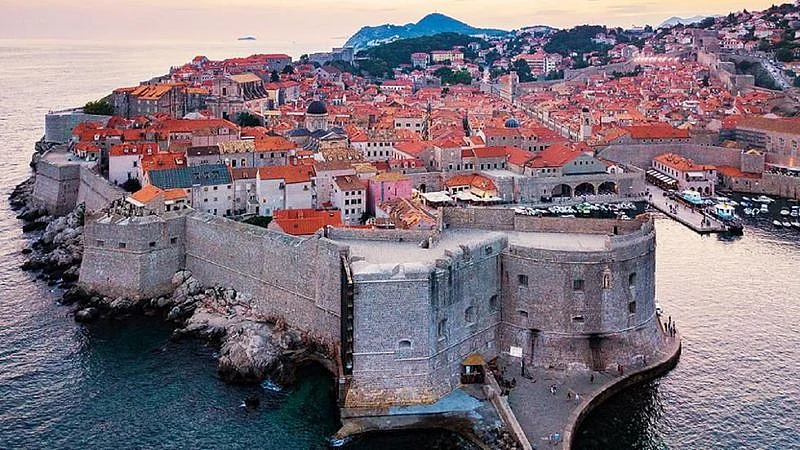Flexible ‘European tourist visa’: Fresh push by Italy, Greece, and France
A new vision for travel mirrors the spirit of the pan-European visa idea

A bold idea is gaining traction in Europe: a European tourist visa that would simplify travel across the continent and boost tourism by offering easier, more "inclusive" access than the current Schengen system.
On Friday (July 18, 2025), Antonio Tajani, Deputy Prime Minister of Italy and Minister of Foreign Affairs expressed his agreement with Greek Tourism Minister Olga Kefalogianni’s proposal for a visa facilitating tourist travel across multiple EU member states.
The statement was made during a tourism forum in Rome. Kefalogianni suggested introducing a unified visa allowing tourists who wish to visit several EU countries — such as Greece, Italy, and France — to do so with a single permit.
She highlighted the increasing interest from the Indian middle class and Chinese tourists.
The move could find potential support from non-Schengen states in the Balkans too.
“Of course, all of this must fully respect the security and control requirements established by the Schengen Agreement and the entire body of European regulations,” Kefalogianni said.
Flexible European tourist visa
Unlike the Schengen visa, which covers 29 European countries with strict, uniform rules, the new European tourist visa proposal envisions a more flexible, streamlined, and potentially expanded travel permit — particularly attractive to non-EU visitors.
At the heart of this push are Italy, Greece, and France — three tourism powerhouses eager to modernise entry rules and stimulate cross-border travel for millions of global tourists.
Greece leads the charge
In July 2025, Greek Tourism Minister Niki Kefalogianni publicly proposed the creation of a “European tourist visa” — a single travel document that would allow tourists to visit multiple EU countries more easily.
The goal: reduce bureaucratic friction, respond to rising demand for multi-country itineraries, and position Europe as a unified travel destination.
Kefalogianni stressed that the visa would particularly benefit non-EU travellers, who currently face inconsistent entry processes depending on whether a country is in the Schengen Area.
Italy’s Jubilee visa signals alignment
While not explicitly framed as part of the European tourist visa proposal, Italy’s recent introduction of a “Jubilee-Tourism” visa for 2025 pilgrims visiting Rome reflects similar goals.
Spearheaded by the Italian Ministry of Foreign Affairs, this visa features online applications and relaxed entry conditions for cultural and religious travel.
Though focused on a specific event, Italy’s approach reflects broader support for modernised, more accessible tourism visas — mirroring the spirit of the pan-European visa idea under discussion.
France’s caution
As a top tourist destination, France traditionally supports visa facilitation— especially when it enhances EU cooperation and security.
While no direct public statements on the European tourist visa have been made by French officials as of July 2025, France’s alignment with Greece and Italy in broader tourism policy circles suggests conditional support, especially if the new visa complements or strengthens existing Schengen controls.
| Feature | European Tourist Visa (Proposed) | Schengen Visa |
|---|---|---|
| Coverage | EU + potential non-Schengen states (e.g., Balkans) | 29 Schengen countries |
| Application | Streamlined, digital-first (proposed) | Paper-heavy, embassy-based |
| Flexibility | More countries, cross-regional ease | Only within Schengen Area |
| Insurance & Funds | Potentially relaxed rules | Strict (€30,000 coverage, detailed bank proof) |
| Duration | Up to 90 days (proposed) | 90 days in a 180-day period |
| Eligibility | Non-EU tourists, aspiring EU/Schengen members | Nationals from non-exempt countries |
Who else supports the idea?
Countries in the Western Balkans — like Albania, Serbia, Kosovo, and North Macedonia — have voiced strong interest in aligning with the visa.
These nations are often left out of Schengen but see a unified European tourist visa as a step toward EU integration, economic growth, and increased connectivity.
Tourism-reliant , travel industry stakeholders, and advocacy groups such as the Friends of the Western Balkans have also backed the concept, emphasising its potential to boost jobs, simplify mobility, and expand Europe’s tourism footprint.
Why it matters
Economic boost: Easier access means more tourists, more revenue, and more jobs—especially for less-visited but emerging destinations.
Regional integration: Encourages alignment between Schengen and non-Schengen nations.
Digital innovation: Pushes for smarter, faster visa systems in an increasingly competitive global travel market.
Unified tourism brand: Positions Europe as a seamless, continent-wide destination.
Outlook
As of mid-2025, the European tourist visa remains a proposal under active discussion, championed most visibly by Greece, with Italy and France showing indirect but supportive actions.
Should consensus emerge among EU member states, this could mark a historic shift in how global tourists experience Europe—beyond borders, beyond bureaucracy.
Sign up for the Daily Briefing
Get the latest news and updates straight to your inbox
Network Links
GN StoreDownload our app
© Al Nisr Publishing LLC 2026. All rights reserved.